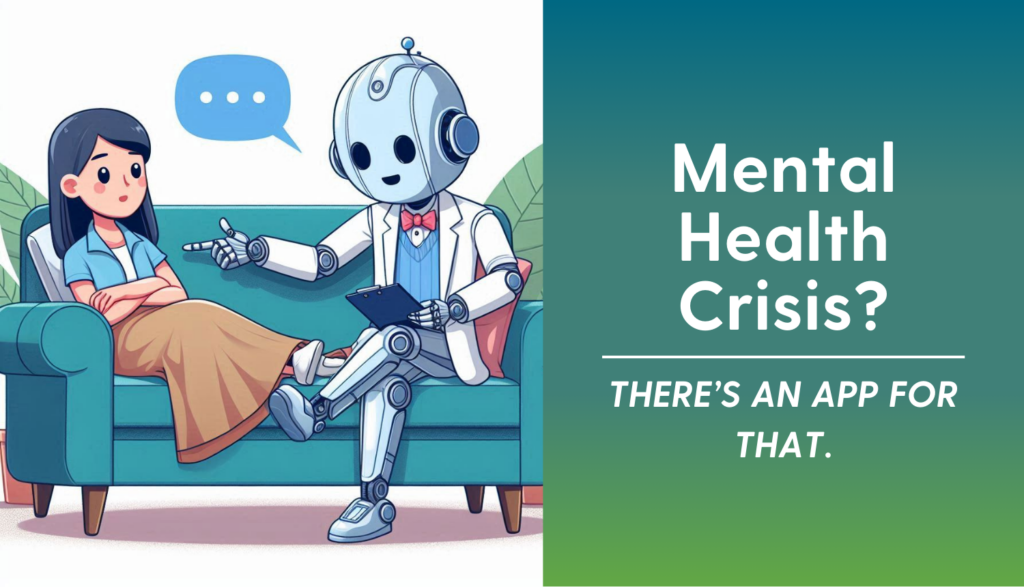The Substance Abuse and Mental Health Services Administration has declared that nearly 58 million Americans are currently affected by some form of mental health issue. Those conditions include the likes of anxiety, depression, bipolar disorder and schizophrenia, to name a few. On top of that, studies have found that just using social media has saddled a growing number of teens with feelings of stress, depression, body image concerns and loneliness.
Add all that up and you can easily get the impression that we are fast becoming a nation in need of a good therapist. Hey, even before the internet, Charlie Brown and Lucy were telling us as much.
However, there’s a problem, Charlie. The nonprofit Mental Health America estimates that more than 28 million of those potentially struggling folks, young and old, don’t receive any kind of treatment at all. And in many cases, that’s because they live in federally designated “mental health shortage areas,” where good docs are in short order.
So, what’s to be done? Well, it turns out there may soon be an app for that.
According to an NBC News article, researchers at Dartmouth College have been running clinical trials on an artificial intelligence-powered therapeutic app for a while now. (Several other AI mental health applications are currently being tested nationwide as well.) The programs are not only designed to listen and give users aid but potentially step up in areas where people can’t readily find a human therapist for help.
Dartmouth’s “Therabot” is a text-based app that uses generative AI, the same technology that powers OpenAI’s ChatGPT. So, the application is very capable of participating in give-and-take typed out discussions; compiling related health data; analyzing patient patterns; and then providing personalized advice or recommendations.
Of course, with all the reports we’ve read recently about AI spectacularly messing up in one way or another, can we trust these digital constructs to lead us to a perfect mental health diagnosis?
Uh … probably not right now. And human doctors warn that AI still hasn’t gotten to the point where it can totally replace a flesh and blood caregiver.
After all, mental health therapy is an art form of sorts. It requires a human therapist to interpret non-verbal cues, empathetically understand a patient’s feelings within a larger narrative, and deal with complex human emotions. I mean, the human touch—that sense of being able to belong, trust and connect—isn’t completely possible for a computer program to grasp at this point.
But as Nicholas Jacobson, an assistant professor at Dartmouth College and a clinically trained psychologist says, apps can at least be a good stopgap. Jacobson’s team has been building and testing their Therabot for nearly five years, working to ensure responses are safe and responsible. And the user feedback has been very positive.
“We’ve heard ‘I love you, Therabot’ multiple times already,” Jacobson said. “People are engaging with it at times that I would never respond if I were engaging with clients. They’re engaging with it at 3 a.m. when they can’t sleep, and it responds immediately.”
And that’s the key: access.
So, while we shouldn’t be expecting a bespeckled bot with a pipe, a pad and pen and a comfortable office couch that we can stretch out on anytime soon, we may well find an app ready to lend an “ear” to our woes in the near future. And with our own very human discernment in tow, that could be a pretty good thing. After all, who doesn’t love to see a “The Doctor Is In”sign when you need it most? Lucy would be pleased.








One Response
“We’ve heard ‘I love you therabot'”
“They’re engaging with it at 3 a.m.”
So the creators are literally spying on conversations with the app?